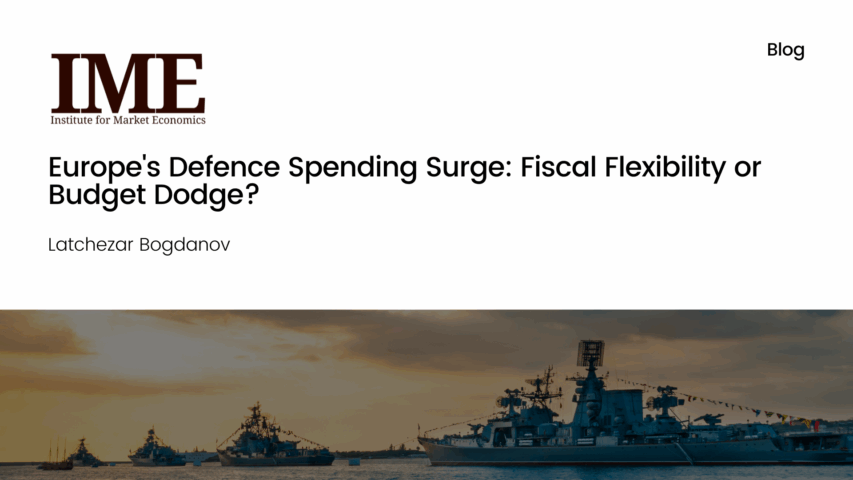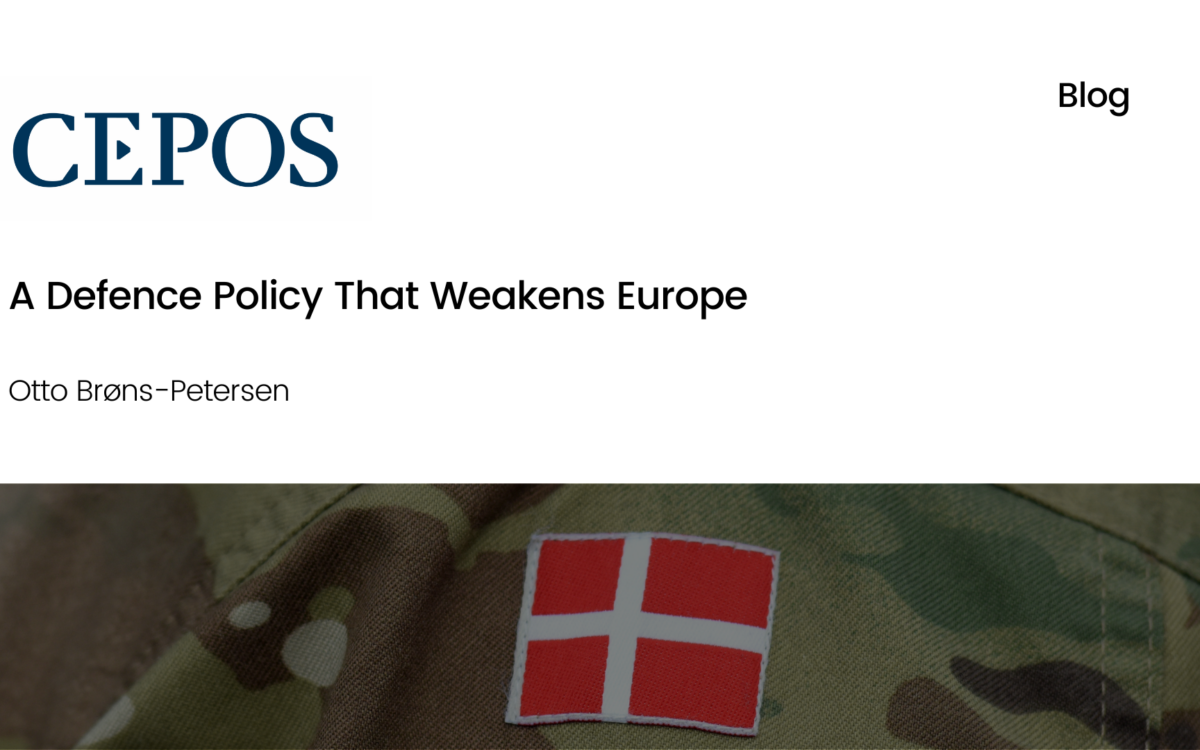Europe’s Defence Spending Surge: Fiscal Flexibility or Budget Dodge?

Europe's Defence Spending Surge: Fiscal Flexibility or Budget Dodge?
Latchezar Bogdanov // 22 May 2025
Bulgaria and fifteen other member states have declared their intention to increase (in a coordinated manner) their defence spending without violating the new EU fiscal rules framework. Simply put, the budget deficit will be allowed to exceed 3 per cent of the GDP for the period 2025–2028 if it is allocated to additional military spending, whether in the form of investments or recurrent expenditures.
As IME (Sofia) commented a few weeks ago, in mid-March, the European Commission announced a so-called national escape clause, applicable for a period of four years. The clause allows each member state to spend an additional 1.5 percentage points of its GDP on defence compared to 2021 level (the year before Russia’s war on Ukraine began). The extra spending will not be taken into account when assessing whether a country should be placed under the EU’s excessive deficit procedure.
For Bulgaria, this means potentially increasing defence spending to 3.1 per cent of its GDP for the period 2025–2028 without incurring any EU policy consequences. In practice, this represents official permission to allow a budget deficit exceeding 3 per cent of the GDP. As such, two developments – or a combination of them – are possible.
The Bulgarian government knows that after its outrageous surge in public spending, it will be impossible to meet the deficit target of 3 per cent of the GDP in this and the next three years. With the application of this escape clause, the ‘ceiling’ on planned defence spending – 1.9–2.2 per cent of the GDP over four years in the current medium-term forecast – above the 2021 benchmark (1.6 per cent of the GDP) will not be taken into account. In other words, the deficit may increase to 3.3 per cent of the GDP in 2025 and rise to 3.6 per cent in 2028, without any new defence spending, but only considering what is already budgeted. In practice, the clause would allow for 0.3–0.6 per cent of GDP higher spending on other budgeted items. Instead of pressing for spending cuts, the government will ‘get away’ gracefully and even with encouragement from Brussels.
However, it may also be assumed that the Bulgarian government is genuinely willing to spend significantly more on defence as well. This would amount to roughly лв9.6 billion more for the whole period until 2028, if we use GDP projections. The additional fiscal space would mean a deficit ceiling of 4.5 per cent of the GDP, with 0.3–0.6 per cent of the GDP ‘opened up’ for other types of budget spending in the coming years. The new defence spending alone would increase the government’s debt by лв9.6 billion, or 3.8 per cent of the GDP, by 2028.
According to this week’s EU Council announcement, sixteen countries have requested a derogation. The absence of Italy, France, and Spain from the list is notable. Italy has a deficit and debt problem, and it spends little on defence. France has almost as big a deficit and debt problem, but it traditionally spends more on defence, although it stays below 2 per cent of its GDP. Spain is in a slightly better fiscal position, but again, it has a deficit above 3 per cent of its GDP, and it spends much lesser on defence. Sweden and the Netherlands, meanwhile, claim that due to the good state of their public finances, they will be able to increase their defence spending without the derogation.
Interestingly, all the Central and Eastern European countries that joined the EU in 2004 requested the derogation. Romania, which joined along with Bulgaria in 2007, is not on the list. However, it also has the highest deficit in recent years, reaching a shocking 9.3 per cent of its GDP in 2024. In the group of countries (excluding Bulgaria) that will benefit from this clause, the increase in defence spending will average 1.1–1.3 per cent of the GDP. If we apply this to current GDP figures (excluding projected inflation and real growth), it would mean an additional €110 billion in defence spending. Of this, 60 per cent would be by Germany and another 8 per cent or so by Belgium and Poland.
In short, the political consensus seems to have moved in support for expanding military expenditures. Unfortunately, this have not yet provoked a much deeper debate on the need to cut inefficient public spending and shrink other areas of state intervention.
Latchezar Bogdanov is the Chief Economist at the Institute for Market Economics.
This blog was originally published by Institute for Market Economics in Bulgarian.
EPICENTER publications and contributions from our member think tanks are designed to promote the discussion of economic issues and the role of markets in solving economic and social problems. As with all EPICENTER publications, the views expressed here are those of the author and not EPICENTER or its member think tanks (which have no corporate view).



